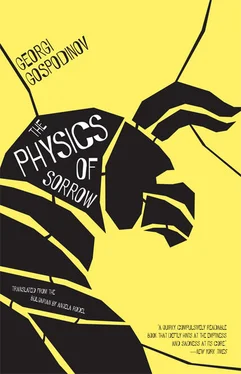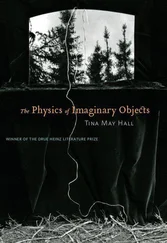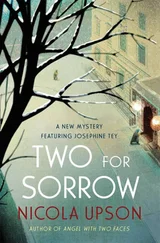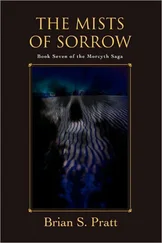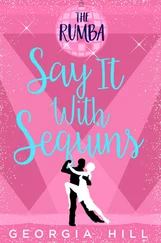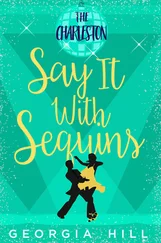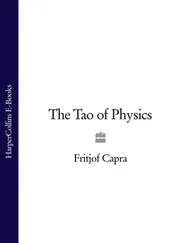“How long do words last?” I repeat this, because I don’t know the answer. “Let us assume that they last as long as the breath with which you utter them. You exhale the word, it’s so light, you fill its sails and send it toward the harbor of the Other. It might perish before reaching shore, it might sink along the way, shipwrecked against the flotilla of another’s words. Whether that is fragility or unfathomable endurance, I cannot say.” (I won’t apologize for this outburst of lyricism here.)
“I’ll ignore the lyrical explanation. So where does that leave your own identity, if you set store by the changeable?” He refuses to give in. “Where does that leave your forefathers, traditions, culture? All of that which was created from constancy? All of that which you call up so as not to forget who you are and where you come from?”
“And what has that identity of yours ever given you, ass-hat?” (Politesse has now definitely been left in the dust.) Blood and wars, busted butts, suicide bombers — there’s your inheritance. There’s only one true identity — to be a living creature among living creatures. To be ephemeral and to value the Other, because he is ephemeral as well.”
“Man is the measure of all things, thus what man creates must endure so as to outlive him.”
(Now I’ve got him — I invented him after all, I have the right to push him into a trap.)
“Exactly, man is the measure of all things. And everything that exceeds this measure and lasts longer and remains after his death is inhuman by its very nature, a source of sorrow and discord as a rule.” (Are you listening to me now? He’s listening, that’s what I invented him for.)
“But. ”
“We live in houses that will continue to live on even after we die. We go into cathedrals, where long lines of people and generations who are no longer with us have trod, as if on Judgment Day. All of this tells you: you pass on, but we remain. We’ve buried plenty before you, we’ll take care of the ones you’ve sired as well. Think up at least one good reason why that which is built of stone should last longer than that built of flesh. I don’t see any particular point or justice in that. We can only wonder what sense of time and the eternal the ones who came before us had, in the dark night of the primeval, living in their flimsy huts, outliving their flimsy huts, outliving their hearths, moving from place to place, measuring out their lives in days and nights, in lighted and extinguished fires. They truly lived forever, even if they died at thirty.”
THINGS UNSUITED TO COLLECTING (A LIST OF THE PERISHABLE)
cheeses — start to stink
apples — shrivel up and rot
clouds — constantly change their states of aggregation
quince jam — gets moldy on top
lovers — get old, shriveled up (see apples )
children — grow up
snowmen — melt
tadpoles and silkworms — anatomically unstable
If we draw the line, it turns out that nothing organic is suitable for collecting. A world with a permanently expiring expiration date. A perishable, shriveling, rotting, deteriorating (and thus) wonderful world.
A PLACE TO STOP
I can imagine the look on the face of the first person to find these notes. He’ll probably think that some monster lived here. Indeed, inside me, the Minotaur shivers, afraid of the dark, but otherwise I look completely normal, I wear the body of a white, middle-aged man, a woman is carrying my child, I sometimes go to the seaside, alone, or travel abroad. I keep up what they call “a normal life” in the upper world. OK, fine, I do pass as quite withdrawn and reticent, but in my line of work, that absolutely goes with the territory. My books sell relatively well, which allows me the time and space to do my own things and guarantees me much-needed tranquility. I don’t give interviews.
I used to be able to take part — a bit sluggishly, true — in lively conversations and at the same time to be somewhere else entirely, in a different body or memory. Sometimes this would show ever so slightly, one or two women with whom I was in closer contact always caught me. I got off the hook using the alibi of a writer. You can be absent as much as you like, they’ll always understand when you want to be left alone or when you don’t respond to repeated invitations. At first they keep calling, then they quickly forget you. Here people forget quickly, I don’t know if I’ve mentioned that already.
ANNUNCIATION AND OYSTERS
When I got word from my wife that she was pregnant, I was almost 2,000 miles away from her. I was just preparing to eat an oyster for the first time in my life (me, who had once been able to be a slug) in an old French castle at the opening of a ponderous (and tasteless) writers’ festival. I had never tasted oysters before. Just as I had never had a child before. We had been trying for a few years. So the two things were both happening to me for the first time — the annunciation and the oyster. A French journalist was holding a big oyster in her hand and explaining to me in bad English how to sprinkle it with lemon and suck it out of the shell. I was also holding an oyster in my hand, watching the squirming little body, in my other hand I was clutching a piece of lemon like a laser gun, trying to awaken the killer in me. I thought the lemon would kill it. The oyster’s body, fragile and slimy, resembled both a vagina and a fetus, swimming in its embryonic fluid. At that moment the cell phone in my pocket started buzzing to tell me I had a message, this dulled my hesitating conscience, decisiveness was transmitted via some invisible neural synapses, the muscle fibers contracted, their movement reached the three fingers of my right hand that were squeezing the lemon, and the oyster-embryo writhed beneath the paralyzing lemon juice. I closed my eyes and swallowed it. At that moment, my grandfather passed by, swallowing his living medicine, and patted me on the back. I took out my phone. The text message read: “I took a test, it said YES.” Short and sweet, without unnecessary drama. My wife always catches me at the scene of the crime. I thought I felt the oyster move inside me. I felt nauseated and made a dash for the bathroom. I felt like Cronus, having just swallowed another one of his children. I’ve never tried oysters again.
THE END OF THE MINOTAURS
Someone’s walking around inside me. Someone’s gotten lost in my belly. That’s what she said one winter afternoon, as we were sitting quietly in the room, trying to hear the snow piling up outside. It sounded beautiful and timeless. Lying back in the rocking chair, she had opened up Ancient Greek Myths and Legends and placed the book on top of the protruding oval of her belly, like a roof.
It’s so close, only centimeters away from us, I thought to myself, behind this wall of skin, yet days, weeks, and months have to pass before it arrives.
I wanted to remember all of that, the chair, the window growing bright with snow, the beauty of that phrase, the whole antiquity of dusk in winter. There is no season more ancient than winter. I grabbed a sheet of paper and scribbled out a few phrases, mostly for the sake of mnemonics. Despite this, something like a poem came out. Which nevertheless had its own logic, insofar as poetic techniques are a kind of mnemonic device. Is Homer’s hexameter not, in fact, a mnemonic trick, a memory tool? I was trying to describe that night and to enter into the cave, the burrow or house of that belly. And I saw that the places had been switched around. That which was roaming around inside was not the Minotaur, but rather that which would kill him. Let’s call it “Theseus” for the sake of clarity. The umbilical cord is there inside like Ariadne’s thread. So then where is the Minotaur? The answer lay in the anxiousness of the inquiry. The Minotaur was me. Let’s turn that phrase around, so I can’t hide in its tail end. I was the Minotaur. Theseus — he, she, it (the gender doesn’t matter) — was coming to kill me with all the innocence of predestination. There was nowhere to hide, I could only meekly await his arrival. That poem was called “The End of the Minotaurs.” I should look to see where I tucked it away.
Читать дальше
